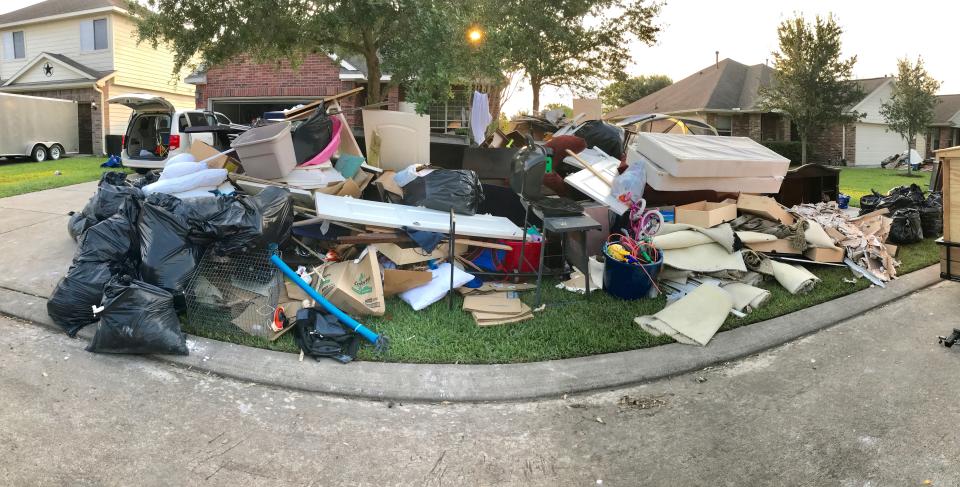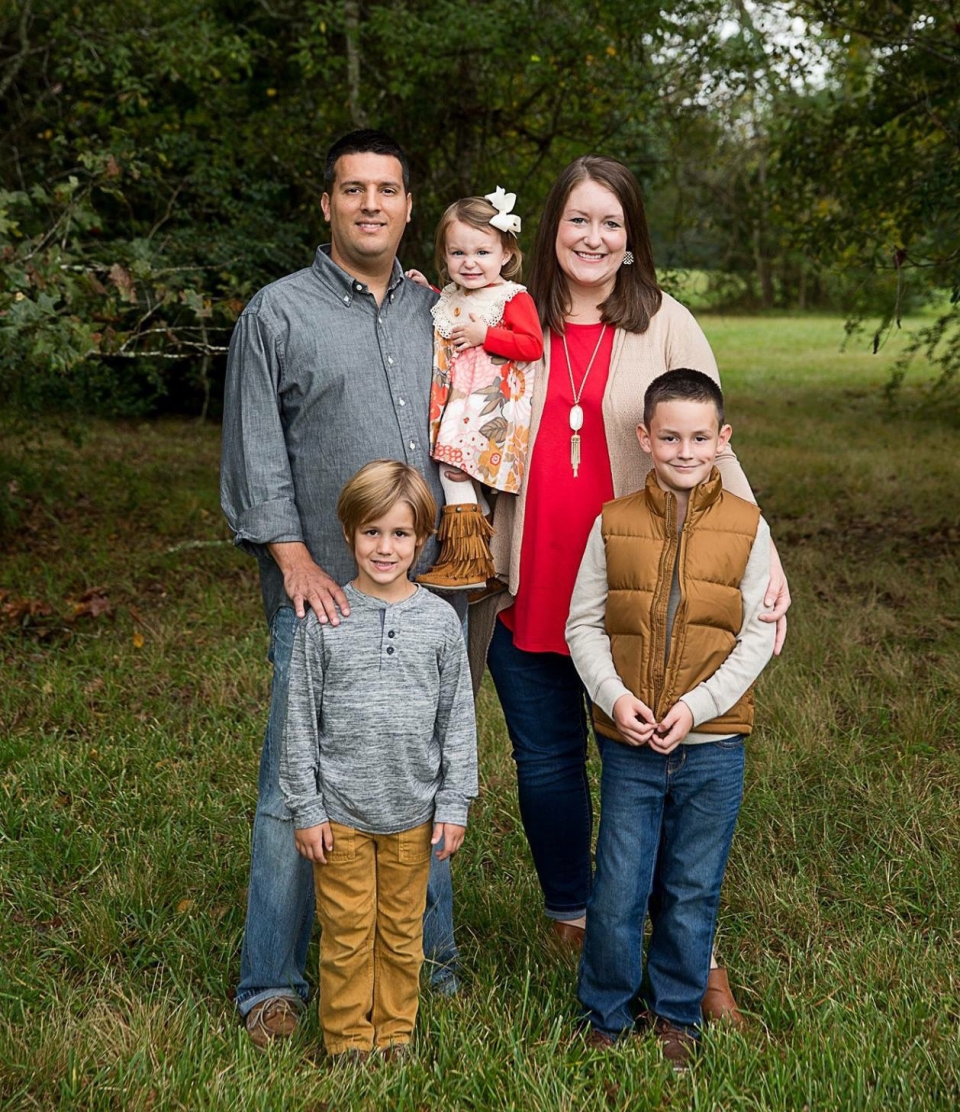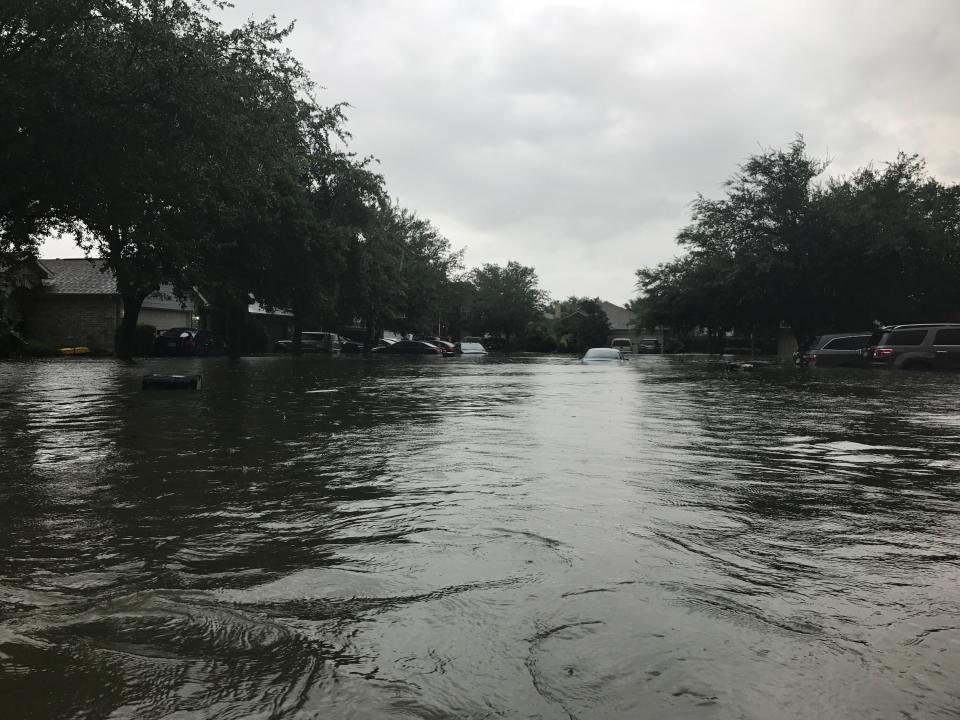How to bypass charities and give to hurricane victims directly

I didn’t know anybody directly harmed by Hurricane Harvey, which dumped record rainfall on parts of Texas and Louisiana, causing biblical flooding. But I wanted to help and figured I’d donate to one of the usual charities. Then a friend told me about a family she knew that had been flooded out of their one-story home, with most of their belongings trashed. The house would need extensive repairs—and the family had no flood insurance.
It turned out I could donate directly to this family—the Rochas, of Dickinson, Texas—through an account a friend set up for them on GoFundMe, the crowd-funding site. I liked the idea right away. I’d know something about who my money was going to, instead of wondering how the Red Cross or Salvation Army or United Way would spend my donation. I didn’t have to research which charities spent the most on actual aid and the least on overhead, to get the best bang for the buck. Sure, the Rochas might spend my money on cigarettes or beer, but my friend assured me they were solid folks. Besides, maybe they deserved a free beer or smoke.
Hurricane Harvey, and Hurricane Irma right behind it, have helped highlight this new way of bypassing traditional charities and giving directly to the victims of disasters. GoFundMe says it has hosted “thousands” of fundraising campaigns for Harvey victims, so there are many to choose from for those who want to give. There will be many more once Hurricane Irma has finished its rampage. Other sites, such as Kickstarter and Indiegogo, have a few campaigns related to the hurricane, but they tend to be more focused on community efforts—similar to traditional charities—rather than individuals or families.
There can be some obvious downsides to personalized donations through a crowd-funding site, most notably, the risk of scams.
“For somebody who wants to give directly and quickly, you can feel like you’re having a direct impact on that family,” says Katie Rusnock of Charity Navigator, a nonprofit that analyzes and rates charities. “The drawback is, it’s harder to vet these types of campaigns. Unless you’re giving to somebody you know personally, we recommend you donate to an established charity.”
Crowd-funding donations are only tax-deductible if they go to a recognized charity, and that does not generally include one-time campaigns set up for individuals or families. And GoFundMe, like other crowd-funding sites, takes a 5% cut of all money raised, so donations do, in fact, pay for a bit of overhead. That’s still lower than most charities, which generally spend 10% of their revenue or more on overhead. A 2014 expose by NPR and ProPublica found that while the American Red Cross claimed to spend 9% of its money on overhead, the real number was closer to 25%. Some critics say the Red Cross is still opaque about where donated funds go.
I called Ashley Rocha, 30, to ask her what happened, and how her family was getting along in the grimy aftermath of the flood. Their home had never flooded before Harvey, and they did not live in a flood zone, which is why they never bought flood insurance. Around 2:30 am on Sunday, August 27, after several hours of relentless rain, water began pouring into their single-story home. So she and her husband Stephen put life jackets on their three kids—ages 8, 6 and 2—along with leashes on their two dogs, and went to a neighbor’s two-story home. But the water kept rising and they realized they’d be trapped if they didn’t leave.

So they met up with relatives who lived nearby and finally got word that friends had arrived with a pickup truck at the edge of the flooded area to transport the whole group to safety. To move around, they waded through water that was chest-high at times, with two of the kids and both dogs floating in a turquoise plastic wading pool. Those friends put them up for several days, until they moved into a vacant rental property owned by a friend of a friend.
When the Rochas returned to their home after 4 days, it was a grim sight. “We lost every appliance,” Ashley Rocha told me over the phone. “All of our furniture is warped. All of the carpet is ruined. Anything on the ground goes. My house right now is down to the studs.” Both of their cars—a Nissan Altima and Dodge Caravan—were total losses. Insurance will cover the Caravan, but they didn’t have comprehensive coverage for the Altima, which was older.
When I donated to the Rochas’ campaign, they had raised about $5,000. Ten days after the floods came, they were up to just over $10,000. The idea for the campaign was a friend’s, and Ashley initially declined. “We’re the kind of people who hate depending on others for stuff,” she told me. Her friend persisted, however, and Ashley finally agreed. Now, when she looks at the account, she says, “I’m just blown away at the generosity.”

Getting back to normal will cost the Rochas tens of thousands of dollars, and they’re not sure how they’ll manage. The older kids are back in school, wearing donated clothes. Stephen, 35, is back to work at his job as a local bank manager, and Ashley will return soon to her job as an aide at a preschool.
They’ve talked with the Federal Emergency Management Agency, which told them there are 550,000 requests for federal help and only 1,500 inspectors on the ground to determine who qualifies. So it could be a long wait. The Rochas haven’t tapped the GoFundMe money yet, because they’re working through procedures the site has established to assure money goes to intended beneficiaries and isn’t pilfered. Once they can get it, they’ll stretch it as far as they can on materials needed to rebuild.
When I talked to Ashley, she stressed several times that she felt lucky, compared with others who lost more to Harvey. It occurred to me that the ability to reach out for help on the web was actually a sort of privilege, as well. It requires an Internet connection, after all—which the Rochas didn’t have, but friends did—along with a bank account and a basic knowledge of how crowd-funding works. Some people lack even those resources, making traditional charities as important as ever, at least for the underprivileged. So after thinking about it, I matched my donation to the Rochas with one to the Red Cross, hoping it will do some good for somebody.
Rick Newman is the author of four books, including Rebounders: How Winners Pivot from Setback to Success. Follow him on Twitter: @rickjnewman. You can email him at rickjnewman@yahoo.com.

